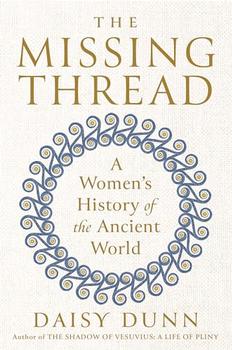(4/11/2023)
Grounded in long-buried secrets, cunning lies, and scheming subterfuges, this spellbinding psychological thriller doesn't appear to be that at all until the book has you deep in its clutches. Oh, this novel by Claire Fuller is quite the page-turner.
It's the summer of 1969 on a remote English country estate—think Downton Abbey but a lot less opulent and a lot more dilapidated. The estate, Lyntons, has been purchased by a wealthy American, who has hired two experts to move into the house for a few months and survey the estate—from the considerable damage due to neglect, as well as to inventory the belongings that haven't already been confiscated.
The lead character is Frances Jellico, who at 39 finds herself at a crossroads. Her ailing, belligerent, and complaining mother, for whom Frances singlehandedly nursed for a decade, has died, leaving her basically nothing. Frances has never had friends or a boyfriend. Her social anxiety pegs very high. Coupled with that, she is overweight and doesn't know the first thing about clothes. But she does know a lot about garden architecture and so has been hired to survey the grounds, including an ornate bridge and various ornamental buildings, to determine their architectural origin. Also invited to the house for the summer is Peter Robertson, an antiques specialist whose job it is to survey the grand house's interior and its contents. Peter brings along with him his girlfriend, Cara Calace, who poses as his wife. They are dazzling, glamorous people, who seemingly have it all—at least in Frances's eyes. Add to all this, the possibility that Lyntons is haunted. Both Frances and Cara see, hear, and experience unusual and unexplainable things, much to Peter's incredulity, doubt, and disgust.
The three become fast friends, much to Frances's delight as she has never experienced before the joy of friendship, and she quickly becomes obsessed with Peter and Cara. (This obsession is fueled in part by a spyhole in her attic bathroom that peers into Peter and Cara's bathroom. Oh, the things she sees!) Instead of doing the work they've been assigned to do, the trio spend lazy, decadent days feasting on food, drinking wine swiped from the Lyntons' magnificent and extensive wine cellar, smoking cigarettes, listening to Simon and Garfunkel, and exploring the mysteries of the house and grounds, finding quite a few surprises.
But none of the three is exactly who they portray themselves to be, and as their secrets, lies, and subterfuges grow larger and stealthier, their carefully crafted deceptions and duplicities come crashing in with violence and tragedy—and the biggest deceit of all.
Interwoven throughout the story is Frances at the end of her life as she lies dying, recalling to her old friend, Victor Wylde, what really happened that fateful summer. In the summer of '69, Victor was the vicar of the small Anglican church near Lyntons and is now the chaplain tending Frances in the end-of-life unit in which she resides. It is through these brief interchanges that the reader becomes aware that all is not as it seems, that there is an undercurrent of wrongdoing and perhaps even evil shrouding Lyntons.
Best of all, the writing is superb, especially in painting through words the picture of the crumbling estate—the leaking downpipes, the moldy, swollen books in the library, the infestation of deathwatch beetles, the glassy appearance of a dead mouse and a dead blackbird.
The unsettling plot is carefully nuanced to lure the reader into this spellbinding tale of deception. Claire Fuller knows how to tell a story!



